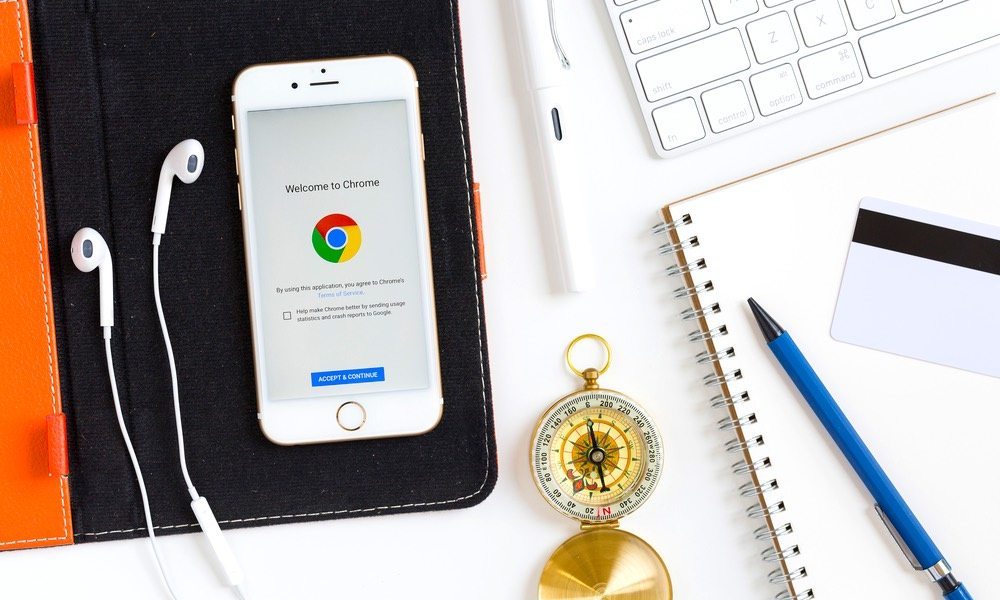Chrome vs. Safari – Which Browser Is Best for iPhone and iPad?
By Mike Peterson
Browsing the web is one of the most important functions our smartphones serve. And if your device runs on iOS, you’ve probably encountered Apple’s proprietary Safari browser. But with top-notch competitors like Google Chrome available on the App Store, there’s a very real question of which iOS browser is the best. So let’s run through the differences — and similarities — between Safari and Chrome for iOS, so you can decide for yourself.
Chrome vs. Safari – Speed
In the past, browser speed was often the deciding factor for choosing which app to use — but that’s less the case today.Since Apple allowed third-party browser developers to use the same engine that powers Safari, the speed difference between Apple’s proprietary browser and Google Chrome is negligible at best. Since Google switched to Apple’s engine, Chrome is now just as fast as Safari, crashes less, and has similar battery life expenditures.
Now that the playing field has been leveled, which browser to use is now mostly a matter of other features.
Winner: Tie
Chrome vs. Safari – Features
As far as features go, Safari and Chrome are both neck-in-neck. Both browsers have excellent and easy auto fill options, as well as their own private browsing modes. Tabbed browsing with Safari is, arguably, a bit nicer to look at than Chrome’s, but they both offer similar functionality. Chrome, on the other hand, has a different — and slightly more fluid — scrolling feel than Safari, and it’s more akin to what you might be used to on a desktop browser.Safari, of course, offers Reading List — something that Chrome doesn’t have. It’s a nice way to save articles to a dedicated database you can access across all of your iOS devices. There’s also a Social feature that lets you see links shared across your social media platforms.
As far as voice commands go, Google may have an advantage over Safari. While Safari has Siri integration — which is a first-party Apple program — Google’s Now assistant is extremely simple, easy-to-use and has an exceptional accuracy reputation. To most reviewers and tech experts, Google still has the edge when it comes to voice.
Winner: Tie
Chrome vs. Safari – Compatibility with Other Devices
Both iOS browsers offer excellent cloud syncing and integration with their respective desktop versions — but Chrome has an ace up its sleeve.Both Safari and Chrome allow you to browse the web across several different devices — saving usernames, bookmarks, history and passwords between them.
Chrome’s biggest strength, however, is its tight integration with other Google services. Even if you don’t use apps like Google Docs or Photos, you probably use Gmail or YouTube. On top of that, if your main computer is a PC, or if you use an Android tablet, then Chrome is the obvious choice to sync data and browsing history across your devices — as Safari only plays nice with Apple products.
Winner: Chrome
Chrome vs. Safari – Ease of Use
At their core, both Safari and Chrome are pretty easy-to-use web browsers. But since Safari is baked into iOS, it’s the default browser that other apps will open.There are a few exceptions to this. Some Google apps, like YouTube for iOS, will open Chrome preferentially, depending on the app’s settings. But, across the board, most apps, and certainly Apple’s apps, just work better with Safari.
This integration makes it pretty handy for opening a link your friend sent you, or for use with Siri. And, of course, since Apple doesn’t allow you to change the default iOS browser, Safari is your only option if you’re looking for this type of integration.
Winner: Safari
Conclusion
It may sound like a cop-out, but which iOS browser you should use really depends on your circumstances.If you’re thoroughly integrated into the Apple ecosystem — you use a Mac for work, a MacBook at home, and your main tablet is an iPad — then Safari is the best bet. It’s clean, simple, fast and offers integration with Apple products that other browsers simply can’t. Alternatively, if you’re not as concerned with syncing across multiple devices, it’s probably best to stick with the default browser.
Of course, if you’re a Google power user — or your other devices are PCs or Androids — then Chrome might be the browser for you. It offers much of the same functionality that Safari does, with few outright cons. The main difference is that you’ll be able to sync your browsing, passwords and other data between your PC, your iPhone and your Android tablet — something that just isn’t possible with Safari.
No comments:
Post a Comment